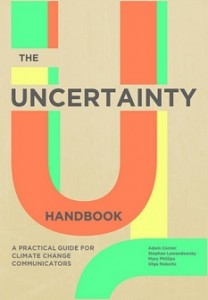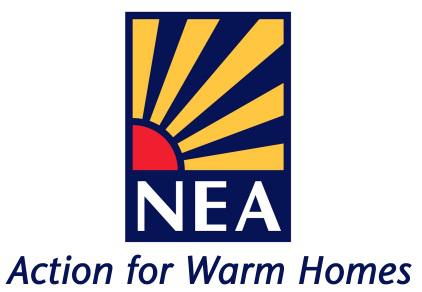News
Ways to Communicate Climate Change More Effectively
Thu, 13 August 2015 Have you ever struggled with the communication of climate change uncertainties? Are you frustrated by climate sceptics using uncertainty – inherent in any area of complex science – as a justification for delaying policy responses?
Have you ever struggled with the communication of climate change uncertainties? Are you frustrated by climate sceptics using uncertainty – inherent in any area of complex science – as a justification for delaying policy responses?
COIN has published a free guide to help you communicate the risks of climate change more effectively. Useful for when you're having a discussion with your friends! The Uncertainty Handbook can be downloaded for free!
New Neighbourhood Planning Handbook
Thu, 13 August 2015The Centre for Sustainable Energy has released a new, free Neighbourhood Planning handbook, a guide for communities who are interested in getting involved with writing a low carbon neighbourhood plan for their local area.
Ending Fuel Poverty Requires More Energy Efficiency
Thu, 13 August 2015 A report from National Energy Action has found that eliminating fuel poverty in the UK is achievable but only if the scale of investment in domestic energy efficiency is increased. NEA believe the government must support the use of revenues from domestic energy customers or public infrastructure funds to adequately resource initiatives across the UK that make homes warmer and healthier and in turn encourage economic growth.
A report from National Energy Action has found that eliminating fuel poverty in the UK is achievable but only if the scale of investment in domestic energy efficiency is increased. NEA believe the government must support the use of revenues from domestic energy customers or public infrastructure funds to adequately resource initiatives across the UK that make homes warmer and healthier and in turn encourage economic growth.
www.nea.org.uk/policy-and-research/publications/2015/fuel-poverty-monito...
Report Looks Into Selling Energy Locally
Thu, 13 August 2015Local communities could break the domination of the ‘Big Six’ energy companies by generating their own power and supplying it back to local people, according to a new report written by leading south west law firm Stephens Scown and RegenSW. The report calls on government and regulators to change the rules to enable local energy supply models to flourish.
DECC Announces FIT Consultation
Thu, 13 August 2015DECC have announced a consultation into a number of proposed policy changes, the most significant of which for community groups is the removal of preliminary accreditation under the feed-in-tariff (FIT).
Preliminary accreditation allows potential projects to know what rate of FIT they will receive before their project is commissioned and critics fear that removing this will create a level of uncertainty that stops projects going ahead. Responses to the consultation must be made by 19th August.
